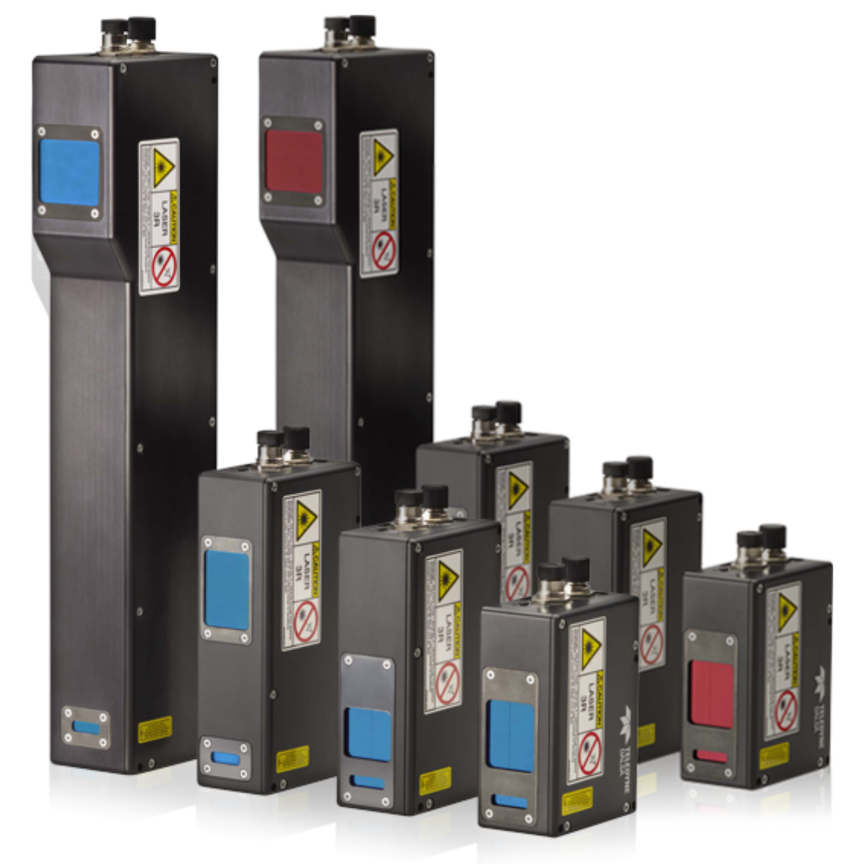LUCID Vision Labs, Inc., a designer and manufacturer of unique and innovative industrial vision cameras, is pleased to announce the availability of its Phoenix Polarization camera featuring Sony’s new IMX250MZR CMOS polarized sensor.
The 5 Megapixel global shutter sensor is based on the popular IMX250 Sony Pregius CMOS mono sensor with a polarizing filter added to each pixel. Like the non-polarized version of the sensor, it has a pixel size of 3.45 µm and can achieve frame rates of up to 24 fps. The IMX250MZR has four different directional polarizing filters (0°, 90°, 45°, and 135°) on every four pixels. The pixel data can be used to calculate polarization data such as the degree and angle of linear polarization.
Polarized sensors enable the detection and characterization of many material properties such as plastic, glass, metal and carbon fiber that were impossible to see with conventional monochrome or color sensors. A wide range of applications such as chemical, pharmaceutical, as well as food and beverage inspection can benefit from using polarization imaging.
“We are pleased to provide early access to customers who are interested in evaluating Sony’s new polarization sensing technology and enhance their inspection capabilities,” says Rod Barman, Founder and President at LUCID Vision Labs. “The Phoenix Polarization camera provides a cost-effective way to uncover hidden material properties to better perform inspection and classification in industrial applications.”
The Phoenix is a micro compact camera with a versatile board design and measures only 24 x 24 mm, making it the world’s smallest industrial GigE PoE camera. All LUCID cameras conform to the GigE Vision 2.0 and GenICam3 standards and are supported by the company’s own Arena software development kit. Early production units of the Phoenix polarization camera model PHX050S-P are now available to purchase.
LUCID Vision Labs has also announced the series production of its cost-efficient 0.4 MP and 1.6 MP Phoenix models. The Phoenix is a micro compact camera line measuring only 24 x 24 mm, making it the industry’s smallest GigE PoE camera.
These lower resolution Phoenix models feature the 0.4 MP Sony Pregius IMX287 and the 1.6 MP IMX273 global shutter CMOS sensors, running at 291 fps and 77 fps, respectively. The Phoenix camera has a unique transformable design that can be easily configured to meet a wide range of OEM applications. Its board layout can be tri-folded into a stacked camera where it resembles a traditional cased camera but can also be unfolded into 90 or 180-degree orientations for the ultimate custom fit. The Phoenix further advances industrial miniaturization by offering NF-mount lenses and Hirose’s ix Industrial™ Ethernet connector. The Phoenix camera features a built-in web interface for easy firmware updates with additional capabilities to be added in the near future.
“These value-packed Phoenix models are a great choice for a wide range of industrial customers who are seeking to integrate higher frame rate, compact GigE PoE cameras at an excellent price point,” says Rod Barman, Founder and President at LUCID Vision Labs. ”Furthermore, these cameras are ideal upgrades for current CCD users looking for improved imaging performance over the existing Sony ICX424 and ICX445 sensors.”
All LUCID cameras conform to the GigE Vision 2.0 and GenICam3 standards and are supported by LUCID’s own Arena software development kit. The Arena SDK provides customers with easy access to the latest industry standards and software technology. Throughout the year of 2018, LUCID will continue to expand its Phoenix camera family with a range of resolutions and frame rates.

